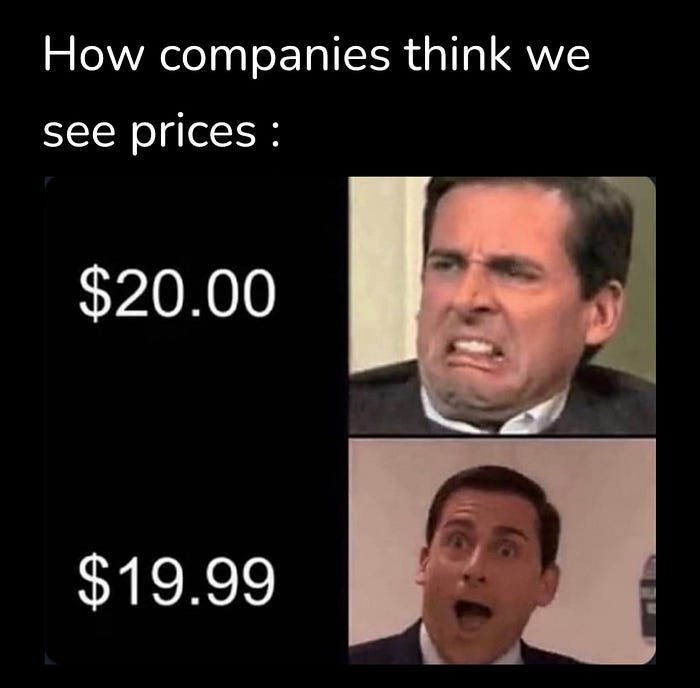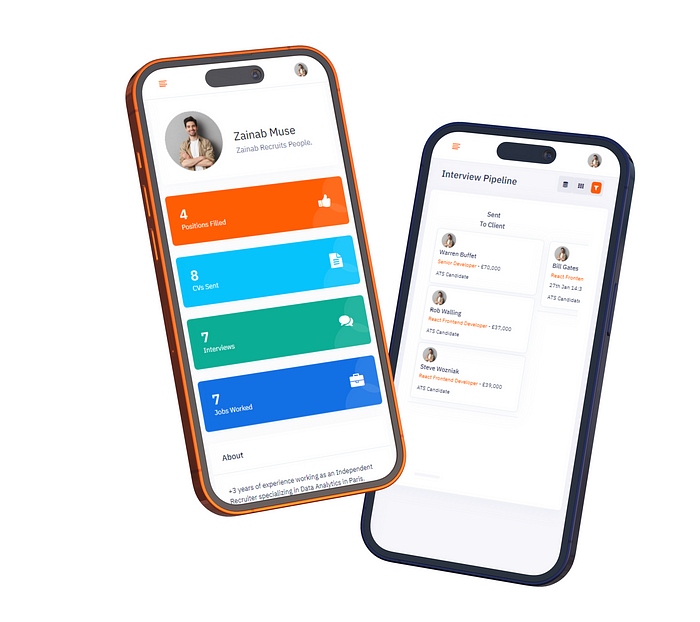This website uses cookies so that we can provide you with the best user experience possible. Cookie information is stored in your browser and performs functions such as recognising you when you return to our website and helping our team to understand which sections of the website you find most interesting and useful.

When comparing Freelance Vs Consultant recruiters it’s clear that freelancers have a better ability to flex to their client’s needs compared to recruiters that are working in an agency.
Every year millions of people in the US are making the switch from working in large corporates to working as Freelancers.
Back in 2017, the freelancer market totalled a whopping 57.3 million freelancers and since then has only got bigger, hitting a total of 73.3 million at the start of 2023.
For anyone like me, that’s shit with maths, that’s a total increase of 16 million freelancers over the course of 5 years.
Mental…
However, this is just the start of the Freelancer movement, as the industry is forecast to grow to 90.1 million by 2028.
For anyone that’s interested in where my numbers have come from, here’s the link:
As the freelancer market seems to be expanding rapidly you have to ask the question:
‘Should businesses hire using a freelance recruiter over an agency recruiter’?
Like all good arguments, there will be pros and cons for freelance vs consultant.
However, today I will focus on how freelance recruiters can provide a more bespoke service compared to agencies.
So…
I guess we should start at the top by defining what bespoke means:
Quite simply Bespoke is…
‘When a service or product is made for a particular customer or user.’
Now before anyone gets too defensive I’m not trying to say that freelancers are better than agency recruiters.
The aim is to highlight that freelancers have the ability to provide a more bespoke service.
Which will be a positive for some.
Think of it like shopping at your local butcher versus shopping at a superstore.
At one, you will get a personalised touch and at the other, you will be another number on the sales sheet.
Recruiters that work for large corporations will have a limited ability to adjust the way they work as they will be pressured to stick within the boundaries of the agency that they work for.
This is because large agencies rely on business systems to function successfully.
Without systems, in place, it’s hard for any large corporation to operate.
Business systems are an incredible tool to help recruitment agencies scale but they can also be the reason why it’s hard for large agencies to flex and offer a bespoke service.
On the flip side, freelance recruiters have the ability to tailor a service to every client they work with, which is one of the big benefits of being a small business.
So, let’s explore this in a little more detail
I will break down how freelance recruiters can offer a more bespoke service when it comes to:
Terms, Pricing, Payment Models & Process.
Let’s kick things off with ‘Terms’
Terms

Most large recruitment agencies will have a standardised contract which will cover their pricing and payment terms.
The bigger agencies that are pushing through thousands of deals each week will be hesitant to adjust their terms due to the size of the operation.
If large agencies who are recruiting for hundreds of clients had bespoke terms with every client they worked with, it would become a logistical nightmare for their finance, legal and operations teams to keep on top of things.
This is why there is value for large recruitment agencies in creating a standardised process.
It saves time and avoids confusion!
Large agencies will also have several decision-makers involved when it comes to changing standardised terms, which will delay the recruitment process.
Nobody likes waiting for approval from a managing director when it comes to signing off a contract!
On the other hand, freelance recruiters that are running a solo operation don’t have these issues.
There’s just 1 decision maker and 1 person dealing with a smaller number of clients which opens up the opportunity for the freelancer to offer a more bespoke set of terms.
It’s quicker to change, adjust and keep on top of things.
Pricing

When it comes to pricing, large recruitment agencies will again have limitations, preventing them from being flexible.
Have you ever wondered why large agencies have to keep their prices high?
Usually, it’s due to the fact that large recruitment agencies also have large overheads.
Especially when compared to freelancers.
Large recruitment agencies will carry the cost of:
Offices, equipment, salaries, legal teams, marketing teams, finance teams, company lunches, social events, management & leadership teams… the list goes on!
When you add up all of the expenses incurred by large agencies it’s easy to see why they have to keep their fees as high as possible.
It’s because their costs are massive!!!
Freelancers on the other hand are at the opposite end of the spectrum,
It’s a 1 person operation, probably running out of a home office, with limited equipment and they keep all of the money for themselves and their family.
Not for the office Christmas party!
This smaller set-up with fewer overheads creates the opportunity for the freelancer to provide bespoke pricing.
Now,
This doesn’t mean that it becomes a race to the bottom regarding price!
When working with freelance recruiters, you can easily fall into the trap of assuming it will be cheaper, which isn’t always the case.
A specialist freelance recruiter, that’s gained +10 years of experience before going solo will be in high demand, meaning they can still charge the same fees as when they were working in an agency.
Supply vs Demand usually means the best freelance recruiters are sought out by the best companies which means they can still be competitive in their pricing.
If someone is offering a price that’s too good to be true, it can often turn out to be too good to be true.
Payment Models

If you have worked with one of the 160,000 agencies out there… Yes, apparently there are 160,000 agencies worldwide.
You will be very familiar with the traditional ‘Contingency Recruitment’ model.
I will quickly explain, for anyone reading this who is unfamiliar with the model.
‘Contingency recruitment’ is where a recruitment consultant will work with clients for no upfront cost.
Recruiters will take the job description, source candidates, send them to the client and manage the recruitment process, only to get paid if one of their candidates is successfully hired.
With the contingency recruitment model, most agencies will look to charge +20% of the candidate’s first-year annual salary.
Again, most large agencies will work in this way and be hesitant to deviate from this norm.
Freelance recruiters will still work using the contingency model but also have the flexibility to work with clients on a ‘Day Rate’ or ‘Monthly Retainer’ model.
The day rate model is simply when a freelance recruiter works with a business at an agreed rate per day.
For hiring companies, that only need some part-time support this is a great way to get help from a specialist recruiter without the need to commit to working with an agency for an expensive placement fee.
The monthly retainer is very similar to the day rate model in the sense that an agreed fee is paid upfront and is set for the month.
Again this is a great way for the client to control the cost of recruitment and it’s great for the freelance recruiter as it guarantees them an income.
Guaranteed income is usually very attractive to freelancers, for obvious reasons.
Process

Like the standardised contract and terms large recruitment agencies will also have a standard process.
I’m sure you will be familiar with Key Performance Indicators (KPIs)
To manage large teams and large businesses, agencies will have KPIs in place to understand which recruitment consultants are performing and hitting their targets.
This can result (not always) in agency recruiters following their internal process and just hitting the KPI for the sake of hitting the KPI.
The freelancer on the other hand is not held accountable by specific targets or processes.
More often than not they will focus on working with their clients in the way that’s best for their clients.
Offering a service that will suit their needs and deliver a positive experience.
When working with a freelance recruiter it’s their brand and reputation on the line, so they will focus on working with their clients in a collaborative way.
Rather than following a specific process to please the senior management team.
In Summary
If you have got this far in the blog, I assume that you’ve figured out the trend.
Due to being a small business a freelance recruiter has a greater level of flexibility.
Allowing them to mould to the processes and structure of their client.
Arguably providing a better level of collaboration
But,
To bring back to what I said halfway through there is no right or wrong here,
It’s like shopping at Tesco or Shopping at your local Butchers…
The Plug

Throughout this piece, I’ve got so caught up in the writing that I’ve forgotten to slip in the selfless promotion of Giig.
So I will drop it here in a blatantly obvious fashion
If you’re a hiring company that likes the idea of using a Freelance Recruiter but doesn‘t know where to start.
Then consider having a quick look at Giig
The Giig marketplace has hundreds of Specialist Freelance Recruiters that have been filling Tech, Marketing & Sales roles internationally.
It takes seconds to sign up and there’s no upfront cost or monthly subscription.
